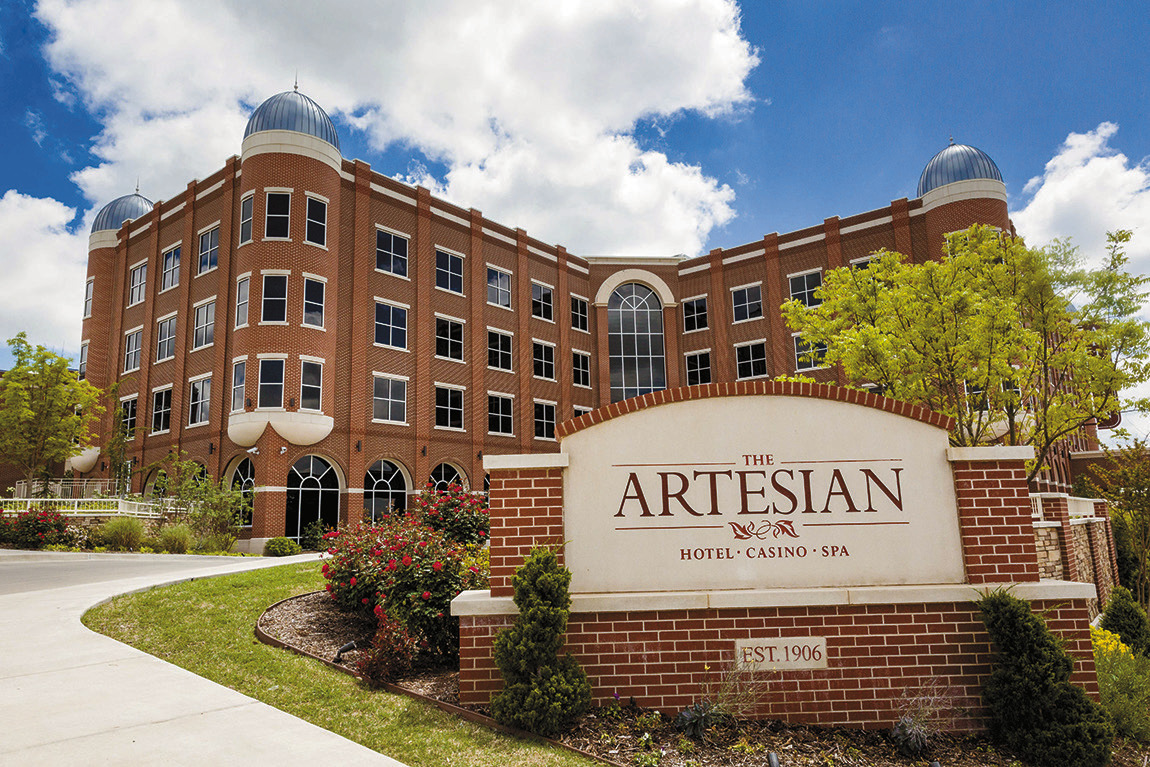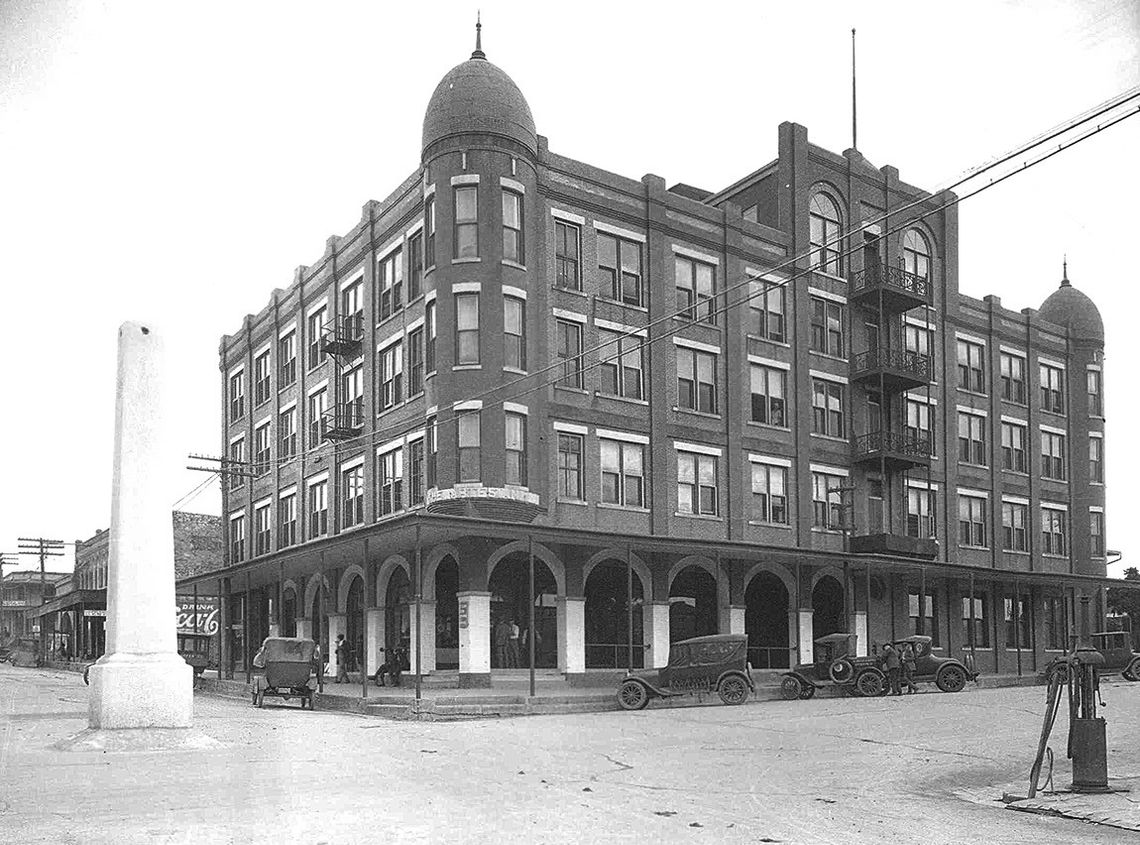Located in the heart of the Chickasaw Nation, Murray County and its neighbor to the north, Garvin County, have played crucial roles in the progress of the Chickasaw Nation.
The natural springs and healing waters of what is now Sulphur, the county seat of Murray County, drew people to the area. Chickasaws, who arrived in Indian Territory following forced Removal from their historic Homeland in the 1830s, revered the area for the springs and natural beauty.
The first residence in Sulphur was on a ranch south of Pavilion Springs established by Noah Lael, son-in-law of former Chickasaw Nation Governor Cyrus Harris. He sold the ranch in 1882 to a Chickasaw family. Lael’s wife, Lucy Harris Lael, daughter of Governor Harris, is interred at Oaklawn Cemetery in the Garvin County community of Wynnewood.
Settlers moved into the Sulphur area in the late 1800s and began developing the land around the springs into a resort. Soon, hotels and bathhouses dotted the landscape in this area now called “Sulphur Springs.”
By 1900, the city of Sulphur Springs had about 1,200 residents and was home to two newspapers, a telephone service, two schools, and enough hotels and boarding houses to accommodate another thousand visitors.
To protect and preserve the mineral springs, the Chickasaw and Choctaw Nations ceded 640 acres of land in 1902 to the federal government to create the Sulphur Springs Reservation.At the tribes’ insistence, a promise was added to the agreement by the government that all people would have free access to the springs for all time.

Local History
In 1906, the area was named Platt National Park, the first national park in Oklahoma. In 1976, the park was joined with the 2,350-acre Lake of theArbuckles and additional lands to form the Chickasaw National Recreation Area.
Built adjacent to the park in 1906, the original Artesian Hotel served as an elegant destination for park tourists until the grand hotel was destroyed by fire in 1962.A72-unit motor lodge style structure, the Artesian Motor Hotel, was built in its place in 1965 and fell into foreclosure in the early 1970s.
The Chickasaw Nation purchased the Artesian Motor Hotel, Sept. 1, 1972, which marked the first business owned and operated by the Chickasaw Nation and proved to be one of the most successful tribal ventures of that era. Promptly renamed the Chickasaw Motor Inn, the business served as tribal headquarters until 1977 when it moved to Ada.
In 1972 when the Chickasaw Nation purchased the motor inn, there were a little more than two dozen tribal employees . Today, the Chickasaw Nation employs more than 14,500 workers worldwide.
After more than three decades of serving throngs of guests, the inn, later renamed the Chickasaw Motor Lodge, was demolished in 2006 to make way for construction of the new Artesian Hotel.
Ground was broken in 2010 and the hotel opened with great fanfare Aug. 1, 2013.
TheArtesian Hotel is designed in homage of the original hotel and features 81 rooms, a restaurant, banquet room, swimming pools and a full-service spa.
The hotel complements other tourist destinations in the Murray County area, including the Chickasaw National Recreation Area, the Chickasaw Cultural Center, ARTesian Gallery & Studios, the Chickasaw Visitor Center, Bedré Fine Chocolate and the Chickasaw Welcome Center.
Garvin County Chickasaw Connections Garvin County was named for Samuel J. Garvin, who married FirstAmerican Susan Muncrief in 1870 . He operated a mercantile business in Pauls Valley.
Garvin County’s most populated city, Pauls Valley, was founded by Smith Paul, a North Carolinian . Three of Paul’s descendants, Samuel Paul, William G. Paul and Homer Paul, were inducted into the Chickasaw Hall of Fame.
Another notable Garvin County Chickasaw is Fredrick Tecumseh Waite. Born in 1853, Waite was the grandson of Elatecha, or Ellen Brown McClure Paul, who was the wife of Smith Paul and mother of Samuel Paul.
As a politician, Waite was elected as a representative and senator from his home district for the Chickasaw Nation; elected as speaker of the House; elected as attorney general of the Chickasaw Nation and appointed by Governor William Guy as national secretary for the Chickasaw Nation.
During his political career, Waite strongly advocated for tribal sovereignty while battling the federal government’s attempts to dismantle his people’s government.
Throughout the decades, many notable Chickasaw citizens have called both Murray and Garvin County home and have made a lasting impact on the Chickasaw Nation’s progress.



